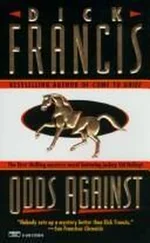“Your room is all ready for you,” said Tibor. “And the Zukorminiums — well, the business could always use a smart young executive with big-city know-how. I have an office space for such an executive. Should one day he happen to appear on my doorstep.”
His mother grabbed the phone. “Honey, you do whatever you want to do. You’re welcome to stay with us as long as you want, of course. But you make your own decisions.”
“Rikki,” said Tibor, warning her.
“Your son is grown. It’s not for us to say what he should do. Mitchell, just because of this disaster you don’t need to change who you are.”
But the storm had already changed who he was. He hung up and, despite the groans of irritation from the people behind him, dialed his voice mail and punched in his passwords. He deleted the twelve messages from his parents and skipped five messages from Charnoble — he didn’t have the patience just now — before arriving at a recording from a man whose voice he didn’t recognize. The man sounded confused, and he kept trailing off; Mitchell could make out only the words “Billy,” “attack,” and “sealed,” and he would have assumed it was a wrong number if he hadn’t heard, at the very end, another word: “Bruner.” He pressed the phone hard into his ear and replayed the message:
“Hey. I’m calling for a Mitchell Zukor? This is Billy. Elsa’s boyfriend. Well she’s still sleeping, but they let us move her back to the infirmary at Ticonderoga. When we were moving her belongings from her old room, I found a note. It said that if anything happened to her — like an attack, actually she specified another attack — that I should give you this other letter she wrote. It’s in a sealed envelope. So: I wondered where I should send it? My phone number is 207-685-4441. Again, this is about Elsa. Elsa Bruner.
“Also, man? If you need a place to stay. You know, with the flood? We’ve got plenty of space now, unfortunately. So. This is Billy—”
He found Jane. She was defending a few square feet of floor against a woman who kept trying to insert her child into the space where Mitchell had been sitting. The woman was using her elbows and her knees.
Mitchell didn’t bother to sit down.
“You can’t stay here.”
Jane narrowed her eyes.
“You should come with me,” said Mitchell. “We’ll tough it out together.”
“In Kansas City? I don’t think so. That’s a bit too close for comfort. I can already see my folks driving down from Winnetka to pick me up. No way. I can’t go back to the Midwest.”
“We’re not going to the Midwest,” said Mitchell. “We’re going north.”
There’s no such thing as courage. There’s only fear. A fear of getting hurt and a fear of dying. That’s why the human race has lasted so long.
— DAVID GOODIS

1.
“It’s just ridiculous.” Jane was getting worked up, her grimy hair dangling across her cheek. “You don’t owe her anything.”
“Just want to visit her.”
“Why?”
“To see what she built. I want to see what she was so proud of. This farm, this life that made her feel safe. Despite everything.”
He wasn’t being entirely honest, and Jane seemed to know it. Of course, he wanted a chance to talk to her, but even if she were still in her blind limbo, a million miles from Earth, maybe it would be enough just to see her. Maybe it would be enough just to take her hand in his own.
Jane was giving him one of her death stares.
“Besides,” he said, in a brusque tone that he did not himself recognize, “there’s a letter.”
“What kind of letter?”
“I don’t know. It’s waiting for me.”
“That’s really wonderful. But I don’t see why I need to come along for the tearful reunion.”
“I want to go, but not alone. I don’t know another way to say it.”
“Mm.”
“Look,” he said, “what happens if they close this center down tomorrow? Would you rather go back to Winnetka?”
“That’s your most logical argument yet,” she said. “But it’s not going to happen.”
They were jolted by a loud electronic trill. It was the first time in two days that they’d heard the sound of a machine. The woman beside them leaped to her feet. Like a soldier checking himself after an explosion to make sure all his body parts were intact, she patted herself down and located the ringing phone in her jacket pocket.
The signal had been restored. It was the first service to come back, before running water and hospitals and even dry ground — the cellular towers and their omnipenetrative electromagnetic fields. Mitchell could feel the electric current zipping through his temporal lobes.
“I have seven messages from Charnoble,” said Jane after listening to her voice mail. “They’re all for you.”
A generator was activated, and a television screen that had been rolled into a corner of the gymnasium zapped on. The national news aired hallucinatory images of flooded New York. A traffic light bent like a cheap spoon. A frenzied school of orange carp fed on the torn garbage bags outside a half-submerged Chinese restaurant on First Avenue. A Gramercy Park brownstone had caught on fire; because the adjacent buildings had crumbled, the brownstone appeared to be standing alone in the water, a fiery monolith. And finally the watery outlines of bodies floating like lily pads on Second Avenue. Mitchell looked away.
He turned on his portable and listened to the messages he had skipped earlier at the public phone. The first three were from Charnoble. A frightening urgency distorted his voice. Charnoble had checked the FEMA website and seen that Mitchell had registered at the Fort Lee relief center.
“Mitchell!” said Charnoble. “I am so pleased you’ve survived.”
He explained that FutureWorld was the only consulting firm to have predicted the flood. Word had gotten out — Jason Tanizaki at Lady Madeline had talked to a reporter from Forbes , and now it was everywhere. “I’ve been getting calls all day. Everyone wants to talk to you. Mr. Brumley and even old Mr. Sansome have called me personally. So have cable news, networks, websites. They want to talk to the man they’re calling the Prophet.”
There were several more like this, interspersed with increasingly frantic messages from his parents and several from college friends he hadn’t seen since graduation. One, who reminded Mitchell that they had sat next to each other in Sputnik for Nudniks on the day of the Seattle earthquake, was now a journalist; he had been assigned to write a feature about Mitchell for The Wall Street Journal. There was a final message from Charnoble. “This is big,” he said. “This is mega. FutureWorld is going mega.” Mitchell thought of megaton nuclear bombs. When he was standing on Beekman Street — the wind crushing umbrellas and hurling them into buildings, the rain like falling ice picks, the security guard’s tired, terrified eyes — Charnoble must have been scurrying to a secure location. The coward was probably in the company car, escaping, at the very moment he’d called Mitchell.
“What does that monster want?” said Jane.
She had just spoken with her mother and stepfather. The conversation seemed to have exhausted her. At the beginning of the call she had tried to sound calm, reassuring, but after a few minutes she hung up in exasperation. Just the sound of Winnetka was enough to make her skin pucker.
Читать дальше













